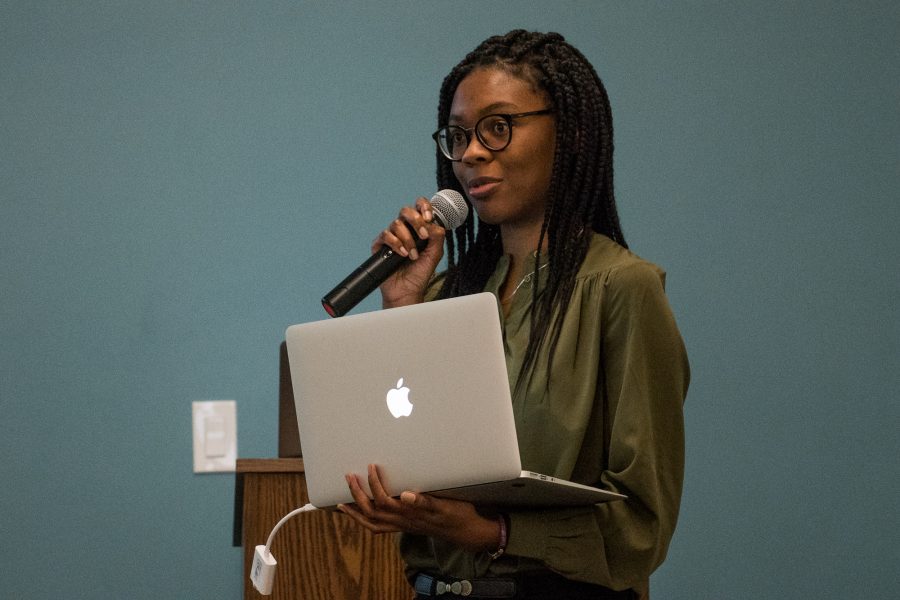Student Government Assembly’s new chairperson will seek to circumvent some of the university’s unnecessary bureaucracy in an effort to provide and connect students with more resources this year.
In an interview with WSN, Jakiyah Bradley — SGA’s chairperson for the 2019-2020 academic year — discussed her vision for the governing body. SGA is made up of three different councils: the President’s Council, which includes school presidents and constituency at large presidents; the Student Senator’s Council, which includes school senators and senators at-large; and the Global Students Council, which includes students from NYU’s global campuses.
In past semesters, SGA has focused on changing NYU policy through resolutions which, if passed by the SSC, must be approved by the Executive Committee of the University Senate, passed by the senate and, finally, approved by NYU’s Board of Trustees.
Bradley said she sees the value in bringing about change in this way, but believes that student representatives should also look for other methods of doing so.
“Making sure that members know they don’t have to write a resolution for everything,” Bradley said. “For food insecurity stuff I never wrote a resolution, I was able to just talk to people. Again, not to downplay resolutions, sometimes it’s just faster to talk to folks.”
Formerly a Senator at-Large for students facing food insecurity, Bradley was part of a working group with administrators, staff and students focused on the issue. Through their efforts, the Courtesy Meals Program — which provides students unable to afford their next meal with $75 dining dollars — was promoted. Bradley has since worked with administrators to improve the program and helped incorporate food-insecurity initiatives into NYU’s deal with their new dining service provider, Chartwells.
Bradley said that, in addition to working with administrators to improve resources, she’d like SGA to act as a go-between for students and existing resources this year.
“If students don’t know where to go to in the university, they should at least feel like they can come to student government,” Bradley said.
Multiple students expressed that NYU — as a university with over 50,000 students and around 5,000 faculty and staff — can be a difficult place to find resources.
“If you know where to get the resources, it’s good for you, but for someone who’s more passive you might’ve been better off going to a smaller college,” CAS first-year Alice Xu said. “You have to be actively seeking out the resources here.”
Tandon senior Lauren Oh said she felt overwhelmed by the amount of services NYU provides.
“There are so many resources that I don’t even know of, but like the ones that I already know I don’t know how to take advantage of them,” Oh said. “I know that there are so many more that I don’t even know how to find.”
Steinhardt sophomore Shane Turner has had a similar experience.
“I do always feel like there’s a resource I’m missing,” Turner said. “Like I always feel like ‘wow, there should be something for this’ and I always feel like ‘there might be something for this’ but the time it would take to go find that and learn it and use it, means I just don’t.”
Turner went on to say that, for student government to remain useful, “You need it to function sort of as a stepping stone between student education and administration.” He’s only one student, but Bradley shares his perspective.
As she looks toward the new semester, Bradley said she would like SGA to focus on connecting students and sees it as a way to make more of an impact on students’ lives.
“We are given so much privilege and responsibility as members of student government and communication is so key, you need to let your constituents know what’s happening,” Bradley said. “[This] is something I think will make student government seen more on campus. But not just seen more, but felt, you know? Because if we’re not doing that connection for students, then what’s the point of us?”
Additional reporting by Lisa Cochran and Miliana Bocher
A version of this article appeared in the Monday, September 16, 2019 print edition. Email Victor Porcelli at [email protected].


























































































































































